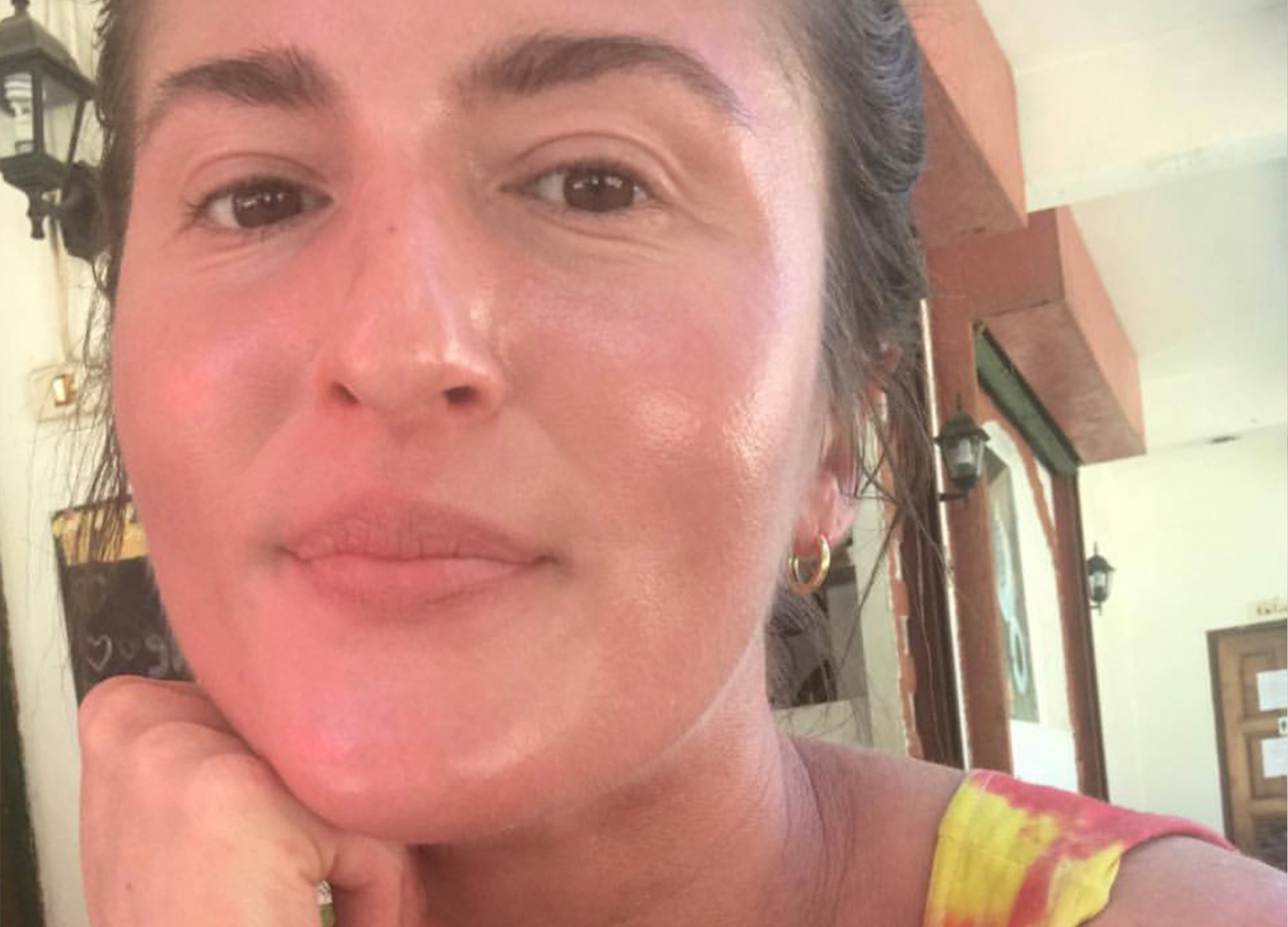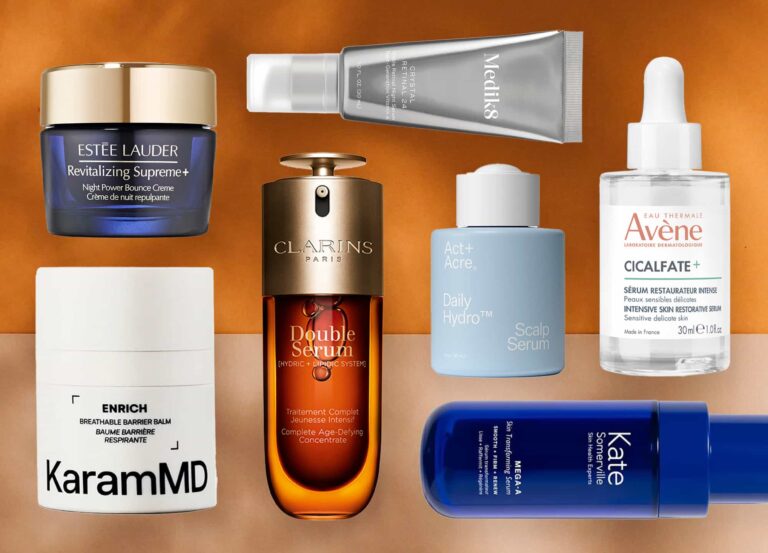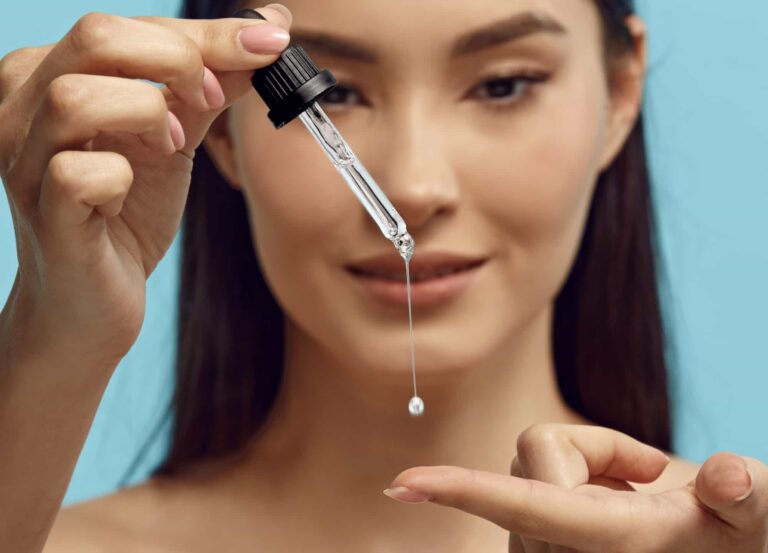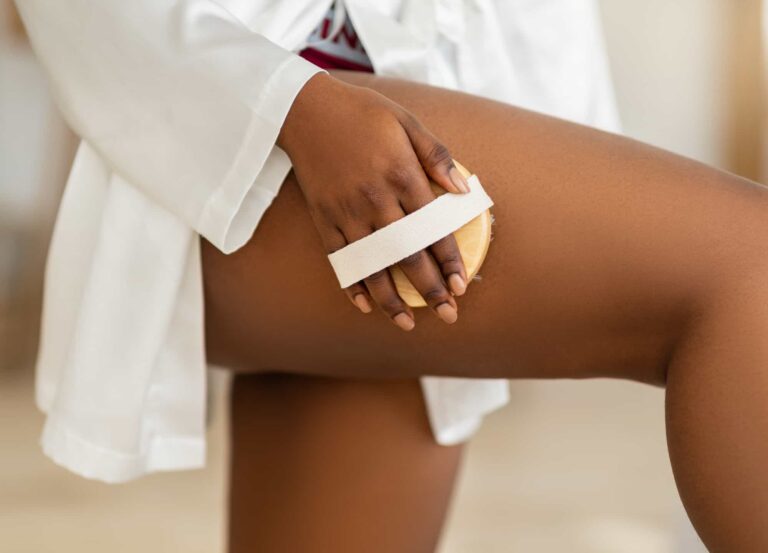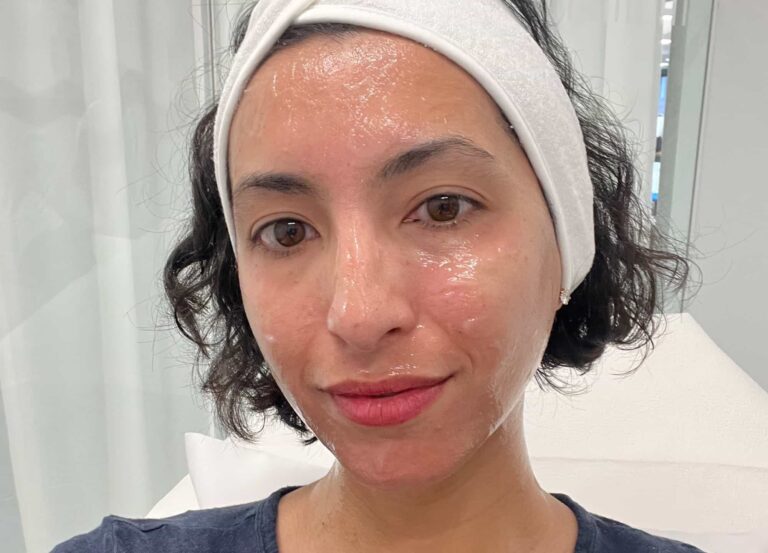I was just shy of 17 when I first noticed the fine lines and wrinkles forming on my abdomen. At first, I thought it might be a weird reaction to a skin-care product I’d used or, perhaps, just temporary indents from the way I was sitting. But when the lines didn’t budge after a few days, I knew something was amiss. I eventually learned that my condition—a rare form of ichythosis known as Netherton syndrome—was causing my skin to age at an accelerated rate. And that it’ll likely never stop.
At 26 years old, I’ve finally come to terms with this. It’s been nearly a decade, and I now have deeper wrinkles Etch A Sketch-ed all over my body—with the most affected areas being my neck, chest, inner arms and thighs, and abdomen. And as if that weren’t cute enough, I’ve got some super-fun sagging and crepiness going on also. To paint a picture for you: My mom turned 52 this year, and some of her skin still looks more youthful than mine. (Maybe my neck can take hers, but at this rate, I’m giving it another 10 to 15 years, tops.)
Now, you’re probably wondering how my skin condition actually caused this to happen. Well, it basically all comes down to my weaker-than-usual moisture barrier. This is how Dr. Adam Friedman, a board-certified dermatologist in Washington D.C., explained it to me: “Netherton syndrome results in an improper turnover of the top layer of the skin, called the stratum corneum, due to a defect in a key protein needed to regulate [it]. Because the enzymes that break down the top layer are not kept in check, the skin barrier is thinned and disrupted, allowing things like irritants, allergens, pathogens, and even UV radiation to get in easier. All of the above can increase inflammation and damage the deeper structures, which ultimately can accelerate the aging of the skin.”
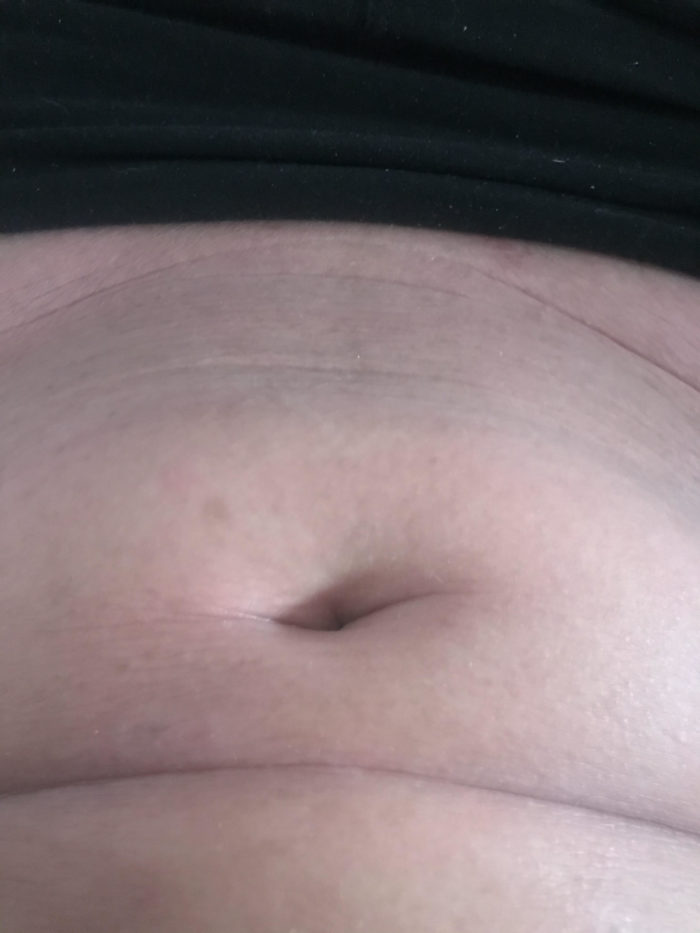
It was a lot for me to take in too—but here’s how I’m trying to look at it: knowledge is power, right? So now that I’m aware of not only what’s happening to my body but why it’s happening, I can devise a plan of action. In this case, the plan involves doing everything in my power to help protect my skin barrier by using diligent sun protection, free radical-fighting antioxidants, and heavy-duty moisturizer. Speaking of which, shout out to the GOATs, Weleda Skin Food ($19), Skinfix Eczema+ Targeted Body Balm ($32), and Egyptian Magic ($30)—they are all seriously stellar options for severely dry and irritated skin that have helped me throughout the years since I gave up on treatments like topical steroids and antibiotic creams (both of which can have adverse side effects, such as increased inflammation and thinning of the skin). Additionally, dermatologists can help delay and temporarily reverse some of the signs of aging—like the ones my skin is experiencing—by way of treatments like Botox and fillers. Keeping my skin as calm and moisturized as possible is the biggest key though, since I’ve come to realize that the more hydrated and soothed my skin is, the less noticeable the wrinkles are.
Then, of course, there are alternative measures that involve anti-aging devices, like The NuEra Tight, Ultherapy, and the Plasma Pen—all of which I’ve considered at one time or another but ultimately haven’t gone through with, for fear of pain or inflammation. But as a beauty editor, I get emails about these popular procedures almost every day, which makes it more or less impossible to fully accept or try to forget about my situation. Put it this way: Imagine you’re insecure about your nose, your lips, whatever, and you get pinged about potential ways to “fix it,” more days than not. Sure, I could just filter them; maybe that would be better for my mental health. But the thing is, there’s another part of me that’s intrigued, that wants to be up to snuff on the latest and greatest anti-aging treatments. The other part of me has wondered if I should throw caution to the wind and go for it.
Related: Why the Plasma Pen Is So Divisive
Just a few months back, I almost did—go for it, that is. I made an appointment with a well-known dermatologist for a consultation, and she suggested that I try Ultherapy, which is a noninvasive procedure that uses ultrasound technology to tighten the skin by heating the tissue and stimulating the body’s collagen-building process. In theory, it sounds amazing, but I was hesitant because of the well-known discomfort associated with the treatment (for those who don’t know, it uses ultrasound energy to heat tissue and jump-start collagen production). My skin is already pretty compromised … could this really be good for it? I wondered. The physician assured me it would be fine—that my neck, which was the area I was considering having treated, “would look 10 years younger afterward.” As soon as those words came out of their mouth, though, I felt myself shut down. Did my skin really look *that* bad? I walked out feeling more discouraged than ever.
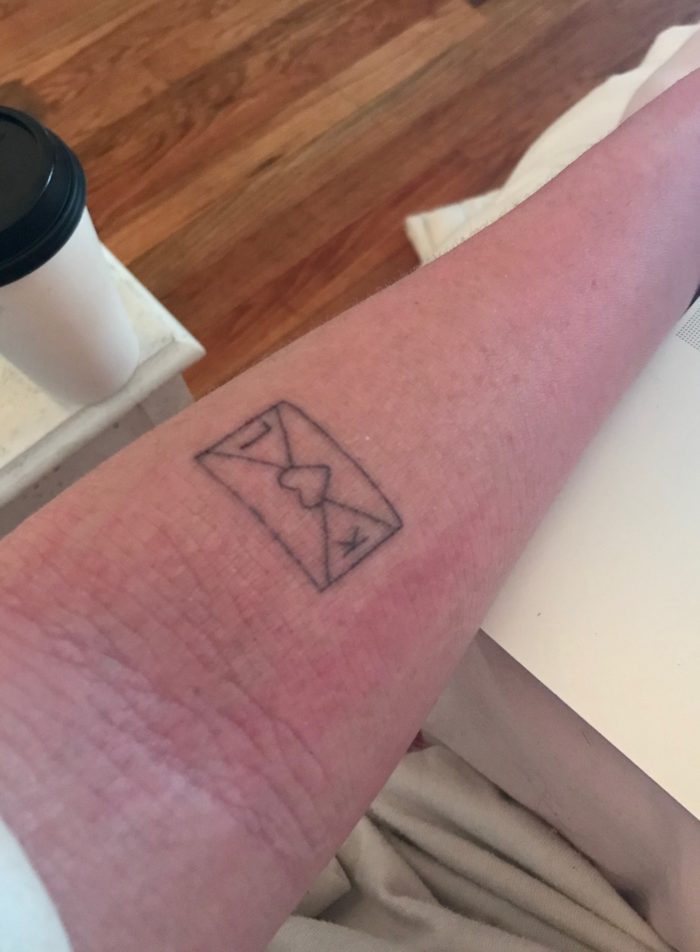
I really wish I could say that I didn’t let my doctor’s comment affect me—that it rolled off my shoulders and I went about my day as if nothing had happened. It wasn’t like they were trying to hurt me, after all. But the reality is, I cried all the way home and then on and off for the next two days. This brings me to the mental and emotional impact of all this. You see, premature aging can take an emotional toll on folks in their 40s, 50s, and beyond, so just try to imagine what it’s like for me to be experiencing its effects in my mid-20s. For further insight on the matter, I consulted San Francisco board-certified psychodermatologist Dr. Josie Howard.
“At 26, a time when most young women are really seeing their adult identity start to coalesce in terms of their profession, romantic life, friendships, etc., to be seeing oneself with the outward appearance of someone at a very different stage in life can be confusing and unsettling,” says Dr. Howard. “The disconnect can lead to feelings of sadness, mourning, and even anger, especially because this is not an experience where there is built-in space to process the divergent transitions—meaning, you are going through a physical transition that is very different from what your peers are experiencing physically,” she explained.
Living with Netherton syndrome does make me confused and sad and even really angry at times. But at the end of the day, I’m not going to let this destroy me. When it comes down to it, these “imperfections” or “flaws” might be a part of me, but they certainly don’t make me who I am. My smile, my laugh, what’s in my heart, and how I treat others—these are what truly matter. So yeah, I’m aging much sooner than I’d like, and some days, that’s a hard pill to swallow. But most days, I’m committed to having compassion for myself and finding the beauty in what makes me, me.







